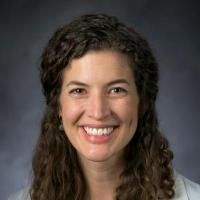Who Will Suffer Most if U.S. AIDS Funding Ends.
Date
2023-10
Authors
Journal Title
Journal ISSN
Volume Title
Repository Usage Stats
views
downloads
Citation Stats
Attention Stats
Abstract
<jats:p>The President's Emergency Plan for AIDS Relief (PEPFAR) is among the most successful US global health programs. It has moved HIV/AIDS from a certain death to a treatable disease. PEPFAR is now in danger of not being renewed. This perspective seeks to highlight the voice of perinatally HIV-infected Tanzanian youth.</jats:p>
Type
Department
Description
Provenance
Subjects
Citation
Permalink
Published Version (Please cite this version)
Publication Info
Dow, Dorothy, and Blandina Mmbaga (2023). Who Will Suffer Most if U.S. AIDS Funding Ends. Journal of the Pediatric Infectious Diseases Society. p. piad081. 10.1093/jpids/piad081 Retrieved from https://hdl.handle.net/10161/29334.
This is constructed from limited available data and may be imprecise. To cite this article, please review & use the official citation provided by the journal.
Collections
Scholars@Duke

Dorothy Elizabeth Dow
Dorothy Dow, MD, MSc is Associate Professor of Pediatrics and Associate Research Professor at the Duke Global Health Institute. Dr. Dow’s research focuses on prevention and treatment of HIV in pediatric populations including prevention of mother-to-child transmission and a focus on adolescent and young adult populations. Dr. Dow is co-director of the Duke Center for AIDS Research Clinical Core, chair of IMPAACT Network Protocol 2016 and a member of the AHISA network. She is co-site leader of the Kilimanjaro Christian Medical Centre-Duke University Collaboration where she works nearly full time in Moshi, Tanzania, though returns to Duke University Medical Center two-weeks two to three times per year to provide clinical care on the general pediatric infectious diseases inpatient consult service.
Blandina Mmbaga
Unless otherwise indicated, scholarly articles published by Duke faculty members are made available here with a CC-BY-NC (Creative Commons Attribution Non-Commercial) license, as enabled by the Duke Open Access Policy. If you wish to use the materials in ways not already permitted under CC-BY-NC, please consult the copyright owner. Other materials are made available here through the author’s grant of a non-exclusive license to make their work openly accessible.
